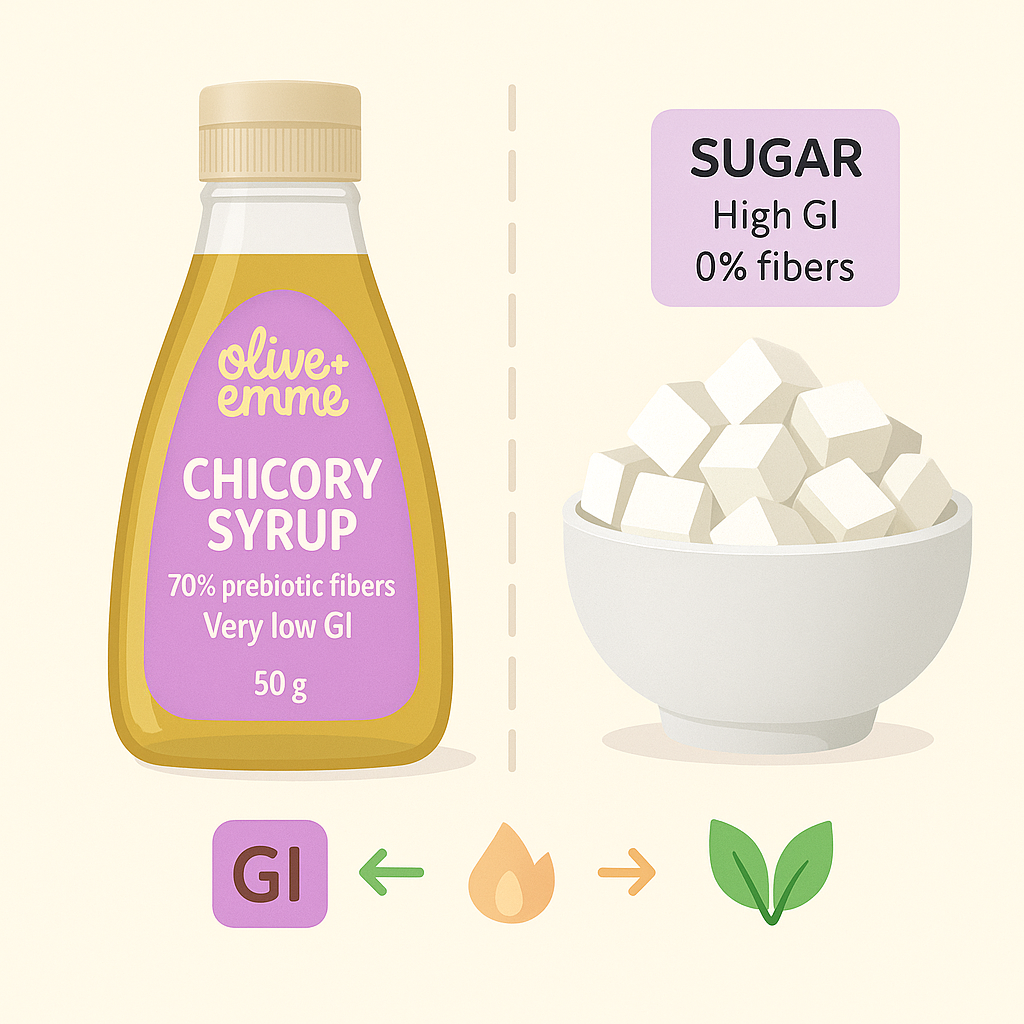In our quest for a healthier, more natural diet, traditional sugar often gets the short shrift. Too high in calories, with a high glycemic index, and no fiber... Fortunately, alternatives exist, including a particularly interesting one: chicory syrup . Here's a clear and simple comparison to help you understand why this natural sweetener is worth getting to know.
📊 Glycemic impact: overwhelming victory for chicory syrup
The glycemic index (GI) measures how quickly a food raises blood sugar levels.
- White sugar : GI 70
- Agave syrup : GI 55
- Chicory syrup : GI < 20
➡️ Chicory syrup has a very low GI , making it a great option to avoid blood sugar spikes, prevent fatigue, and support a balanced lifestyle.
🔥 Calories: a lighter sweetener
- White sugar : 400 kcal / 100 g
- Chicory syrup : approximately 150 kcal / 100 g
💡 Chicory syrup contains fewer calories because it is mainly composed of soluble fiber (especially inulin) and not simple sugars.
🌿 Fiber: where sugar is completely absent
- White sugar : 0 g of fiber
- Chicory syrup : up to 70% prebiotic fiber
These fibers are not digested by the body, but they nourish our intestinal microbiota. The result: better digestion, more satiety, and support for immunity .
✅ In summary:
| Criteria | White sugar | Chicory syrup |
|---|---|---|
| Glycemic index | High (70) | Very low (< 20) |
| Calories | ~400 kcal | ~150 kcal |
| Fiber content | None | Very high (70%) |
| Effect on blood sugar | Quick peak | Stable |
| Nutritional contribution | Null | Prebiotic |
✨ Conclusion
Chicory syrup is more than just a sugar substitute: it's a natural, delicious, and healthy solution . Whether you're looking for digestive well-being, blood sugar regulation, or simply a more balanced lifestyle, it's a valuable addition to your daily routine.


